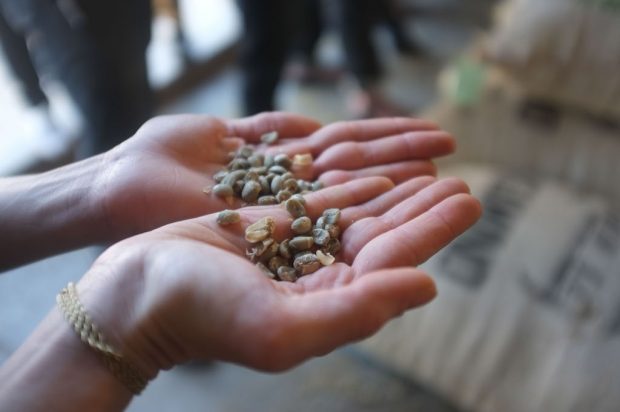In an attempt to recognize and promote the coffee growing and production work done by so many millions of women throughout the world, Minneapolis-based green coffee importer Cafe Imports has formalized a Women Coffee Producers program.
The company has of course been working with women producers and women-led producer organizations for years, but it said that creating a set of base guidelines for the Women Coffee Producers program will help to establish premiums and parameters for participation, while hopefully also empowering women throughout the global supply chain by creating improved equity, empowerment and access to a wider market.
We reached Cafe Imports Founder and President Andrew Miller by email to discuss the inspirations and aspirations behind the Women Producers Program.
Obviously in the past few years, more nonprofits, NGOs etc., have paid more attention to smallholder farmers from a gender perspective, not just in coffee. From your perspective, or from the perspective of CI, have these concepts related to women’s empowerment and equity struck you as sort of common sense or intuitive based on your work on the ground?
These programs have evolved for us organically, in that we are always trying to know more about the producers that are delivering the coffee and trying to support them or honor them with both recognition and price.
The Cesmach women’s program, for instance, is a good example. In the co-op format, many producers are delivering to the shared mill and the coffee has historically been blended together. We have been trying to separate some of the better lots to highlight the producers and pay them more for better quality. Piero, our sourcing guy noticed there were a lot of women delivering coffee and talked with them about their farms and their lives and it became evident that a lot of women were alone and running the farm and family as so many men had gone to the U.S. for better jobs. It just seemed important to recognize that issue and to try to support their cause in order to be a better partner.
We are in a relationship with producers and need to support them or the lives of all of us in the chain of coffee will not improve — especially the lives of small farmers.
Does this program reflect any major changes in your sourcing operations? Or is it more a matter of qualifying and codifying some of your existing relationships?
This program is not a major change in our sourcing operations but more of an evolving style of the work we do in trying to find better coffee and to support the producers we work with. In my 20 years here coffee has continued to get better through the innovation of producers but there is still a lot of room for improvement. We just need to keep digging deeper, highlighting, supporting and paying the producers who do it.
Is this something roasters have asked for?
Roasters didn’t ask for this, but they always ask for more quality, and to know more about the coffee — who, where, how, why, and is there anything better coming. This was a natural fit. Better coffee, more traceability and the ability to support a segment of our society that has been disenfranchised forever in the industry that we work in.
What support does CI have for the idea that producer organizations are seeing value in empowering women, either in terms of social value, or market access value? In other words, is this program also part of a conversation you’re having with producer partners, or is the conversation more focused on roasters?
Last summer I met with the leaders of Amaca, the women’s group in Colombia, and I have met with the Cesmach group in Mexico, as well, and the impression that I have is that the group’s main goal is to support the members by giving them access to education, training, schools for their kids, medical support and social initiatives. They think they can do this by having access to markets, so this has really been their idea and we are just helping them by facilitating and sharing their stories with roasters around the world.
All of this is under the umbrella of quality, of course — more money for better quality coffee — but it is a great opportunity for the women’s groups, and our export partners like it as well because whatever helps the farmers helps us all in the chain of coffee.
What kind of interest in the program have you gotten from roasters thus far?
We have been working with women’s groups in Guatemala and Mexico for about five years and there has always been tremendous interest and obviously strong support from women-owned roasting businesses here in the U.S. We added Sumatra a couple years ago but we didn’t really push it as a program until this year when we added the Colombian group and started to market Women’s Coffee Producers as a platform to support women coffee farmers.
There is a wonderful video on both the Mexican and Colombian women’s groups on our website and we are planning a tour to visit one or more of those co-ops next year — a women’s coffee producers tour kind of thing.
Nick Brown
Nick Brown is the editor of Daily Coffee News by Roast Magazine.







Comment